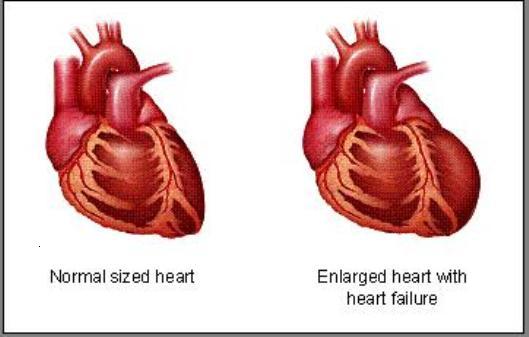 Your body is constantly communicating with you. Very small episodes of acidity, bloating, indigestion, etc. says a lot about your lifestyle and overall health. Are you paying attention? It is important for us to know that about 70% of the immune system is located in our gut and the gut absorbs nutrients that support body functions from energy production to hormone balance, skin health to mental health and toxin & waste elimination too.
Your body is constantly communicating with you. Very small episodes of acidity, bloating, indigestion, etc. says a lot about your lifestyle and overall health. Are you paying attention? It is important for us to know that about 70% of the immune system is located in our gut and the gut absorbs nutrients that support body functions from energy production to hormone balance, skin health to mental health and toxin & waste elimination too.
So how can you keep your gut healthy? Well, follow this guide for a happy gut to stay healthy!
Easy Guide For A Happy Gut
- Fennel Seeds or Saunf: These seeds have antispasmodic, anti-inflammatory properties and promote the production of gastric enzymes. It works wonderfully against indigestion, bloating, acidity, heartburn post meals and constipation too. Just add 1 tbsp of raw seeds to the water bottle you carry to office or have 1 glass of fennel seed water post meals to take care of such symptoms.
- Basil Seeds: They work well in relieving constipation, bloating, naturally detox your body and help regulate smooth bowel movements. It works as a natural coolant. You can have a glass of milk with basil seeds few hours before bed time, or make a drink with water, honey and basil seeds and have it in mid-morning, or just make a habit of soaking it for 2-3 hours and drinking the water in the morning.
- Fenugreek Seeds: These are rich in fiber and antioxidants, and help in enhancing bowel movement. Take a tsp of fenugreek seeds and soak it in 1 cup of water at night and have it in the morning with a glass of lukewarm water if you have long term problems of constipation, indigestion or heartburn. *People experiencing severe acidity should avoid this.
- Lemon Ginger Water: This will help strengthen the digestive system and prevent indigestion, nausea, heartburn and bloating. Take a glass of lukewarm water, add 1 tsp of lemon juice and 1 tsp of ginger juice in it. This will work best for bloating post meals or occasional bloating post heavy meals.
- Apple Cider Vinegar: The unfiltered, unpasteurized and raw mother Apple Cider Vinegar has live micro-organisms and help to work towards heartburn & GI stress. A dilution of Apple Cider Vinegar before a meal can help you stimulate acid secretion and reduce gut symptoms. Also, having a tbsp of ACV in 300 ml water in the morning can also help in the same.
- Water: Is the body’s basic requirement! A constant supply of water is necessary to replenish the fluids lost through activities such as respiration, perspiration, urination, regulating body temperature, digesting food, etc. Try to drink at least 2-2.5L of water throughout the day and it is the answer to all your digestive issues.
- Vegetables & Fruits: Having 1 portion of vegetables in every meal is the best way to help your gut digest the food well and have enough nutrients. Plus, the fiber from them helps to ease bowel movement and acts as food for micro-organisms. Fruits are best to go for in mid meals to add more soluble fiber and get rid of acidity and bloating.
- Physical Activity: No escape here. Being physically active for 30-45mins is the answer to good health and a happy gut. Exercise gets your heart pumping and increases blood flow and oxygen circulation throughout the body. Blood and oxygen are necessary to aid digestion and keep the intestinal muscles healthy. So for constipation, bloating, acidity, heartburn, etc. including some walking, cycling, yoga, etc. will give you better results.
- No Sugar: Processed sugar, refined flour, fried and processed food should be avoided as they are not good for your gut microbes.
Just follow these simple tips for a happy gut! If this article helped you, let us know your thoughts in the comments below. You can find more articles like this on Gut Health here. If you want expert advice or further guidance on improving digestive or gut health, speak to a GOQii Coach by subscribing for Personalised Health Coaching here.
#BeTheForce
 Aakash wondered why every Hollywood and Bollywood movie stressed the “heart”. Some dialogues bothered him:
Aakash wondered why every Hollywood and Bollywood movie stressed the “heart”. Some dialogues bothered him: Mishita, 55 years old, had been feeling low and depressed for a few months. For the past 2 days, she began experiencing slight restlessness, palpitations, and a suffocating feeling followed by mild chest pain radiating to her left shoulder. Being alone, she called her daughter to share these symptoms. Her daughter immediately alerted a neighbour who had basic knowledge about heart symptoms and helped save Mishita from a major heart attack. Early signs of arteriosclerosis were detected, and with lifestyle changes, Mishita is now happy, healthy, and almost off medication!
Mishita, 55 years old, had been feeling low and depressed for a few months. For the past 2 days, she began experiencing slight restlessness, palpitations, and a suffocating feeling followed by mild chest pain radiating to her left shoulder. Being alone, she called her daughter to share these symptoms. Her daughter immediately alerted a neighbour who had basic knowledge about heart symptoms and helped save Mishita from a major heart attack. Early signs of arteriosclerosis were detected, and with lifestyle changes, Mishita is now happy, healthy, and almost off medication!



